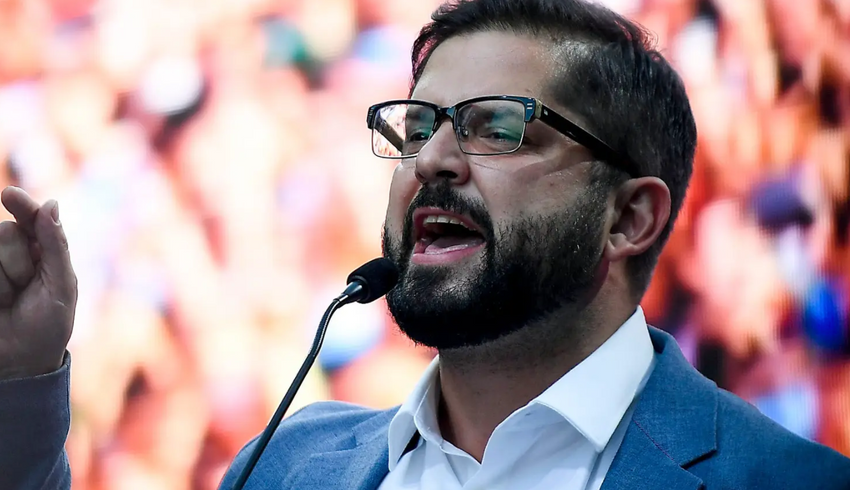
Mr. Gabriel Boric has been elected the new Chilean president in the recent presidential elections held in November. The leftist candidate has beaten the far-right opponent, José Antionio Kast, in an attempt to revolutionize the Chilean economy and to introduce the new wave in the domestic politics, with the younger generation central to the change.
After years of governance characterized by free market economy, emphasizing conservative and traditional values as well as favoring the rich by General Pinochet, the former Chilean ruler, the new wave in Chilean politics has brought a disruption in the governing style. Mr. Boric opposed the free market economy and the conservative Chilean constitution, favoring a more leftist approach. There is no denying that General Pinochet had left the country with an economic state where the majority of society had to deal with poverty and low wages while the rich minority benefited from it, hence the reason behind one of the main policies Mr. Boric was willing to introduce in his campaign and presidency.
Mr. Boric’s campaign revolved around drastically turning the path of the economy. After the primary win earlier in the year, he famously emphasized that even if Chile was the birthplace of the neoliberalism, it shall be the grave of it as well. With such strong statements come great responsibilities, which is what Mr. Boric now faces. Currently, with more than 50%of total income attributed to the richest 20 per cent of the whole Chilean population, the Boric cabinet is faced with distributing the income more fairly among the Chilean citizens.
Above the economic issues, Mr. Boric promises to deal with pardoning student debt, restore territory to the Indigenous communities and to support the unrestricted access to abortion. Apart from that, he wishes to increase the government spending on public healthcare and education and create a more care giving system that would contribute to easing the struggles of women tending to children, elderly etc. On top of that, Mr. Boric is a vocal supporter of LGBTQ+ rights as well as promoting the general human rights.
Nonetheless, Mr. Boric’s presidency, commencing in March 2022, will not be facing an easy task at the beginning. The Covid-19 pandemic has shattered the economy and the divided congress is not an ally to Boric’s presidency. Further, with a hearty and passionate campaign, the voters are left with hope and a lot of expectations that the new President is to fulfill. Patricio Nava, a professor of political studies from the Diego Portales University in Chile has singled out the approach the new presidency is required to choose – either with a radical one, or a moderate one. With the congress divided and generally not in favor of radical changes abolishing the current status quo of the economy and governance style; and the new generation exhausted with the lack of changes of the previous presidencies, the stakes are high for Mr. Boric.
It is arguable that these elections may be one of the most important systematical changes in the contemporary Chilean politics, right on par with General Pinochet’s tenure ending. The elections had been the battleground of completely different approaches towards governing – one in favor of state-run economy with human rights leading the campaign while the other one preferring the abortion ban and fighting illegal immigration. Boric is the youngest president in the history of Chile, who ten years ago was simply a student activist. Such a gigantic leap in responsibility and the obstacles on the way are no aid to the new cabinet, yet this shall be the test for the new generation of voters, politicians, and a completely new governing style. The new president must deliver and is expected of no less, while the outcome of this presidency would be the real proof of whether policies on opposite ends may be switched around within a couple of years.
Reference list:
Percentage of income held by the richest 20 percent of the population in Chile between 2011 and 2017. Accessed on 02.01.2022. Available at: https://www.statista.com/statistics/1075291/chile-income-inequality/
Income inequality, Chile, 1980-2021. Accessed on 02.01.2022. Available at: https://wid.world/country/chile/
Gabriel Boric, a Former Student Activist, Is Elected Chile’s Youngest President. Accessed on 02.01.2022. New York Times. Available at: https://www.nytimes.com/2021/12/19/world/americas/chile-president-election.html
„Chile było kolebką neoliberalizmu, będzie jego trumną”. Zbuntowany kraj ma swojego prezydenta. Accessed on 02.01.2022. OKO.press. Available at: https://oko.press/chile-bylo-kolebka-neoliberalizmu-bedzie-jego-trumna-zbuntowany-kraj-ma-swojego-prezydenta/
Chile: Kandydat lewicy Gabriel Boric nowym prezydentem. Accessed on 02.01.2022. Euractiv. Available at: https://www.euractiv.pl/section/demokracja/news/chile-boric-kast-lula-castillo-peru-brazylia-ameryka-lacinska/
Gabriel Boric beat the far right in Chile. Now he has to unite a divided country. Accessed on 02.01.2022. The Guardian. Available at:https://www.theguardian.com/commentisfree/2021/dec/21/gabriel-boric-far-right-chile
By The European Institute for International Law and International Relations.















